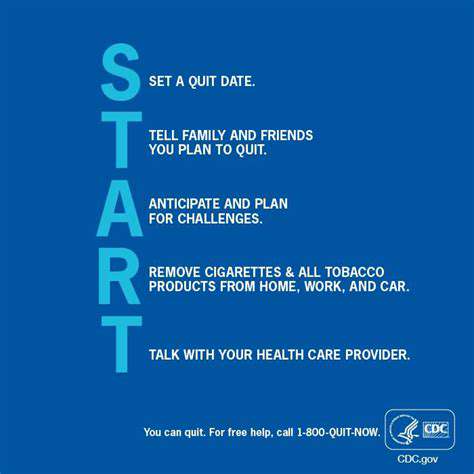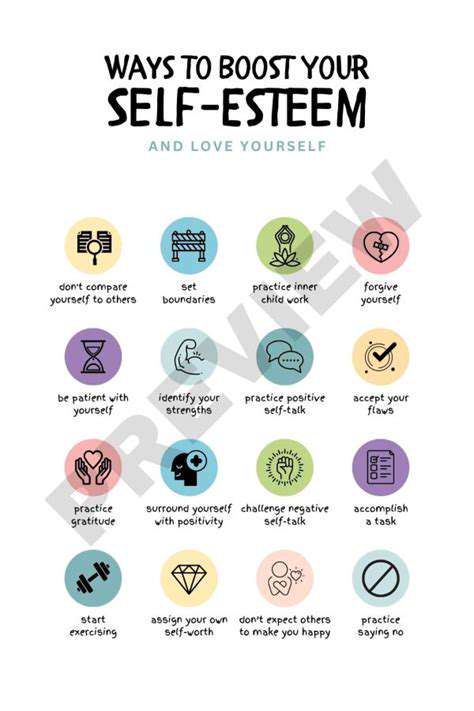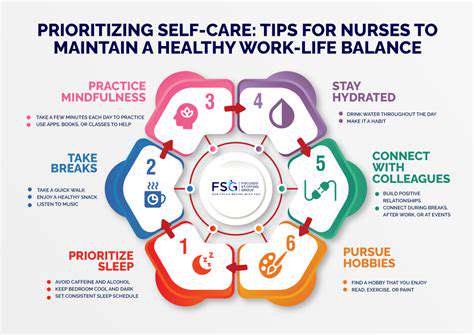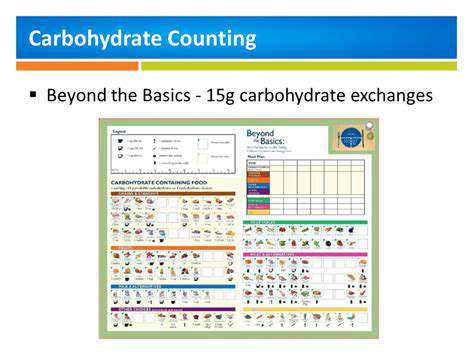Guide to Quitting Smoking for Good [Strategies & Support]

Understanding Your Triggers
Identifying the specific situations, emotions, or people that trigger your desire to smoke is crucial to developing a successful quit plan. Recognizing these triggers allows you to proactively anticipate and manage them, reducing the likelihood of relapse. Understanding your triggers is the first step in breaking free from the cycle of addiction. Consider keeping a journal to meticulously record instances of cravings and the circumstances surrounding them. This detailed analysis will provide valuable insight into your patterns.
Furthermore, understanding the emotional cues associated with smoking can be just as important as environmental triggers. Are you using cigarettes to cope with stress, boredom, or anxiety? Identifying these emotional triggers and developing alternative coping mechanisms will empower you to navigate challenging situations without resorting to nicotine.
Creating a Support System
Building a strong support network is essential for your journey to quitting. Having trusted friends, family members, or support groups who understand your struggles can provide invaluable encouragement and accountability. Sharing your goals and challenges with those in your support system will help them understand your needs and provide the necessary encouragement to help you stay on track.
Don't hesitate to seek professional help, such as joining a support group or consulting a therapist. These resources can provide guidance and support from experienced professionals who understand the complexities of nicotine addiction and can offer personalized strategies to help you succeed.
Developing Healthy Coping Mechanisms
Replacing smoking with healthier habits is vital for long-term success. This might involve finding alternative ways to manage stress, such as exercise, meditation, or spending time in nature. These healthy coping mechanisms provide a positive outlet for your emotions and needs, preventing you from turning to smoking as a solution. Explore different activities that bring you joy and relaxation to create a fulfilling routine that doesn't involve nicotine.
Consider activities like yoga, listening to music, spending time with loved ones, or pursuing hobbies. These activities can provide distraction and fulfillment, reducing the urge to smoke. The key is to find activities that you genuinely enjoy and can integrate into your daily routine.
Setting Realistic Goals and Rewards
Setting realistic goals and incorporating positive reinforcement are crucial for maintaining motivation throughout your quit journey. Start with small, achievable steps, such as reducing the number of cigarettes you smoke each day or designating specific times when you won't smoke. These incremental improvements build confidence and create a sense of accomplishment.
Rewarding yourself for reaching milestones, no matter how small, is essential for staying motivated. This could involve treating yourself to something you enjoy or engaging in an activity that brings you pleasure. The rewards reinforce positive behavior and encourage continued progress toward your ultimate goal of complete smoking cessation.
Historical fiction, at its core, is a powerful bridge connecting the past to the present. It allows readers to step into different eras, experiencing the lives, loves, and struggles of individuals who lived centuries ago. This genre often offers a unique lens through which to examine societal structures, political climates, and cultural shifts, providing a richer understanding of human experience across time. This exploration of the past is invaluable, enriching our own understanding of the present.
Rewarding Yourself and Celebrating Milestones

Setting Realistic Goals for Rewards
Establishing clear and achievable goals is crucial for a successful reward system. Vague or overly ambitious goals can lead to frustration and diminish the positive impact of rewards. Instead of aiming for a massive, unattainable goal, break it down into smaller, manageable steps. Each step achieved can then be celebrated with a corresponding reward, fostering a sense of accomplishment and motivation along the way. This approach encourages consistent effort and builds momentum toward the ultimate objective.
Consider the timeframe for achieving these goals. Short-term goals, for instance, might be suited for daily or weekly rewards. Long-term goals, on the other hand, might be best celebrated with rewards at specific milestones or upon completion. This tailored approach ensures that rewards remain motivating and aligned with the overall progress.
Choosing Meaningful Rewards
Rewards should be carefully chosen to resonate with your personal preferences and needs. Focusing on activities or items that genuinely bring you joy and satisfaction will significantly enhance the reward's impact. Consider your interests, hobbies, and passions when selecting rewards. This could involve anything from a relaxing spa day to a new book, a favorite meal, or a night out with friends.
Don't underestimate the power of experiences as rewards. Experiences often leave a more lasting and positive impression than material possessions. They create memories and foster personal growth. Think about attending a concert, taking a cooking class, visiting a museum, or simply enjoying a picnic in the park.
Creating a Reward Schedule
A consistent reward schedule can significantly enhance motivation and reinforce positive behaviors. A well-defined schedule provides a clear structure and expectation, making it easier to stay on track and celebrate milestones. This predictability helps maintain motivation and prevents the feeling of being overwhelmed.
Consider a tiered approach to rewards, where progressively more significant rewards are tied to achieving increasingly challenging milestones. This keeps the excitement and anticipation alive. A well-structured schedule fosters a sense of accomplishment and encourages continued progress.
Avoiding Over-Rewarding
While rewards are essential for motivation, it's equally important to avoid over-rewarding. An excessive focus on rewards can sometimes diminish their value and create an unhealthy dependency. Maintaining a balance between rewards and intrinsic motivation is key to long-term success and well-being.
Over-rewarding can lead to a skewed perception of effort and accomplishment. It's crucial to focus on the process and the learning that comes from the task itself, not just the rewards associated with it. Finding the right balance ensures that rewards remain positive motivators without diminishing the value of the work itself.
Understanding the Psychology Behind Rewards
Reward systems are deeply rooted in human psychology, tapping into fundamental motivational drivers. Understanding these drivers can help tailor rewards to maximize their impact. Rewards activate the brain's reward pathways, triggering feelings of pleasure and satisfaction, which reinforces desired behaviors.
Recognizing the importance of positive reinforcement and its impact on behavior change is paramount. Rewards can create a cycle of positive reinforcement, creating a powerful feedback loop that supports continued effort and achievement. Employing these psychological principles can lead to more effective and sustainable results.
Celebrating Milestones and Progress
Celebrating small milestones and progress is just as important as recognizing major achievements. This consistent reinforcement of positive behavior creates a strong sense of accomplishment and motivation. It reinforces the positive link between effort and reward, which is vital for maintaining motivation over the long term.
By acknowledging and appreciating progress, you reinforce the positive behaviors and create a supportive environment for continued growth. Celebrating milestones helps to maintain enthusiasm and commitment, fostering a sense of accomplishment and encouraging continued efforts.
Read more about Guide to Quitting Smoking for Good [Strategies & Support]
Hot Recommendations
-
*Guide to Managing Gout Through Diet
-
*Best Habits for Financial Well being
-
*How to Build a Routine for Better Mental Health
-
*How to Eat Healthy on a Budget [Tips & Meal Ideas]
-
*Guide to Practicing Self Acceptance
-
*How to Incorporate More Movement Into Your Day
-
*Guide to Managing Chronic Pain Naturally
-
*Guide to Building a Reading Habit for Well being
-
*Top 5 Weight Loss Supplements That Actually Work
-
*Best Exercises for Postpartum Recovery [Beyond Abdominal Work]






![Guide to Heart Health for Women [Unique Risks & Prevention]](/static/images/26/2025-05/BeyondtheBasics3AAddressingSpecificConcerns.jpg)



